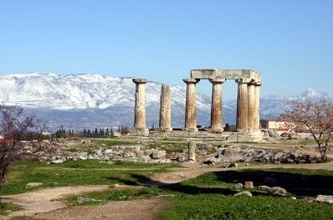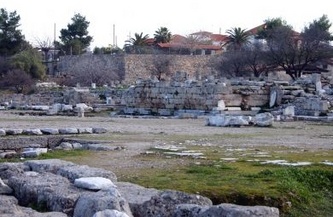 Luke describes yet another event in Paul’s missional work in Corinth — correct that, God’s missional work through Paul. That God is doing something in Corinth was made abundantly clear in the previous passage because Paul is told to stay in Corinth because God had many people in Corinth.
Luke describes yet another event in Paul’s missional work in Corinth — correct that, God’s missional work through Paul. That God is doing something in Corinth was made abundantly clear in the previous passage because Paul is told to stay in Corinth because God had many people in Corinth.
18:12 Now while Gallio was proconsul of Achaia, the Jews attacked Paul together and brought him before the judgment seat, 18:13 saying, “This man is persuading people to worship God in a way contrary to the law!” 18:14 But just as Paul was about to speak, Gallio said to the Jews, “If it were a matter of some crime or serious piece of villainy, I would have been justified in accepting the complaint of you Jews, 18:15 but since it concerns points of disagreement about words and names and your own law, settle it yourselves. I will not be a judge of these things!” 18:16 Then he had them forced away from the judgment seat. 18:17 So they all seized Sosthenes, the president of the synagogue, and began to beat him in front of the judgment seat. Yet none of these things were of any concern to Gallio.
 Paul’s preaching leads to the charge of saying things against the Law, and we can read Galatians 3:19-25 or Romans to infer and guess and speculate what they might have in mind in particulars. Anyway, some Jews think Paul’s gospel is contrary to the Law.
Paul’s preaching leads to the charge of saying things against the Law, and we can read Galatians 3:19-25 or Romans to infer and guess and speculate what they might have in mind in particulars. Anyway, some Jews think Paul’s gospel is contrary to the Law.): Since Gallio has sent away the Jewish opponents of Paul, she argues this is Gentile anti-Jewish behavior. The language, though, is not clear enough and Sosthenes not known well enough to know if Sosthenes is a messianic Jew (possible) or a nonmessianic Jew. The irony, though, is palpable: in front of the Bema seat there is injustice.

